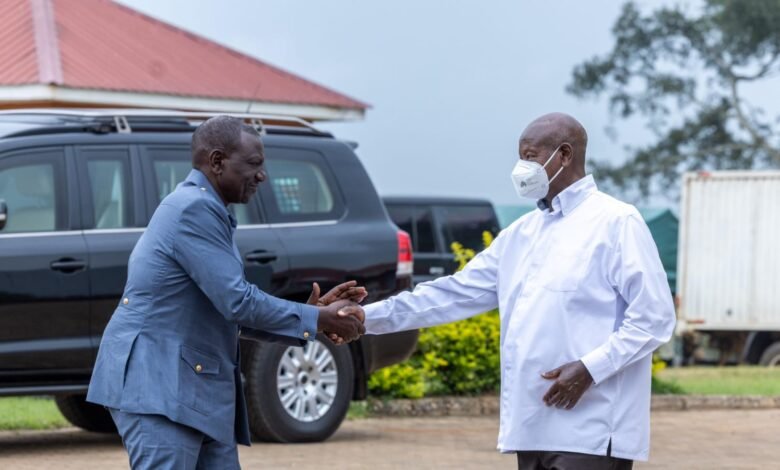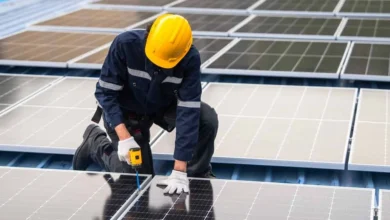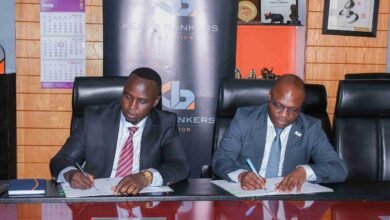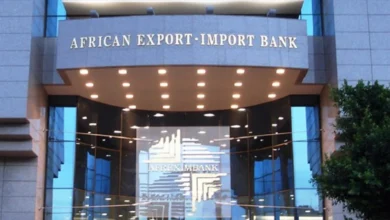
President William Ruto has resolved to end the biting fuel import feud with Uganda, a problem which was going to cost Kenya billions of shillings.
On Monday, Ruto met with his Ugandan counterpart Yoweri Museveni to agree on the way forward.
Among the issues discussed were the flow of petroleum products between Kenya and Uganda.
“I am glad the issues are being discussed,” said Ruto.
The two also agreed on a way of sourcing the commodities and scheduling imports for Uganda.
How the Fuel Import Deal Started
Last year, Kampala lodged a case at the East African Court of Justice (EACJ) against Nairobi for blocking its use of its pipeline to transport fuel.
Uganda filed the case largely out of frustration that Nairobi was denying it an import route.
Kenya, however, retrieved a court injunction in their hands, stopping the authorisation.
Also Read: Ugandan MPs Approves New Aviation Law to initiate Investigations into Aircraft Accidents
The High Court in Nairobi last November barred the Energy and Petroleum Regulatory Authority (Epra) from handling a licence application by the Uganda National Oil Company (UNOC).
The Cabinet has also been retard on a decision that would exempt UNOC from key requirements.
These requirements include Proof of owning a licensed petroleum depot and five retail stations, proof of annual sales volumes of 6.6 million litres of petroleum products and turnover of $10 million for the past three years.
Epra denied Kampala’s application in September on those requirements.
The EAC Treaty
And Uganda has since been accusing Kenya of going against the East African Community (EAC) Treaty.
The treaty requires partners to share existing port and maritime facilities, and the United Nations (UN) Convention on the Law of the Sea, which gives landlocked states the right of access to maritime facilities and transit routes.
It is out of these frustrations that Museveni resumed talks with Samia Suluhu to import its fuel through the Port of Tanga instead of the Port of Mombasa.
But after meeting Museveni in Uganda, Ruto said talks are on the way to resolve the impasse.
“We have agreed on a way forward of sourcing and scheduling imports for the region in a manner that will ensure we achieve the most competitive pricing and maximum logistical efficiency,” said Ruto.
Kampala and Nairobi also resolved to “urgently pursue” the design and construction of the earlier conceptualized Eldoret-Kampala-Kigali refined petroleum product pipeline.
Uganda Imports Through Kenya
Uganda imports 90% of its petroleum products through Kenya and 10% through Tanzania.
There is no pipeline from Dar es Salaam, so fuel transportation is by road and partly through the lake via Mwanza.
The distance from Dar to Mutukula border post is about 1,500km, a costly route considering that the cost per cubic metre is $120 to $130.
Uganda would need more than 200 trailers per day to feed its fuel demand adequately, but each litre carried by road comes with a cost of $0.042 compared with $0.016 on fuel delivered by water transport, economists say.






Your point of view caught my eye and was very interesting. Thanks. I have a question for you.
Thanks for sharing. I read many of your blog posts, cool, your blog is very good. https://accounts.binance.com/register?ref=P9L9FQKY